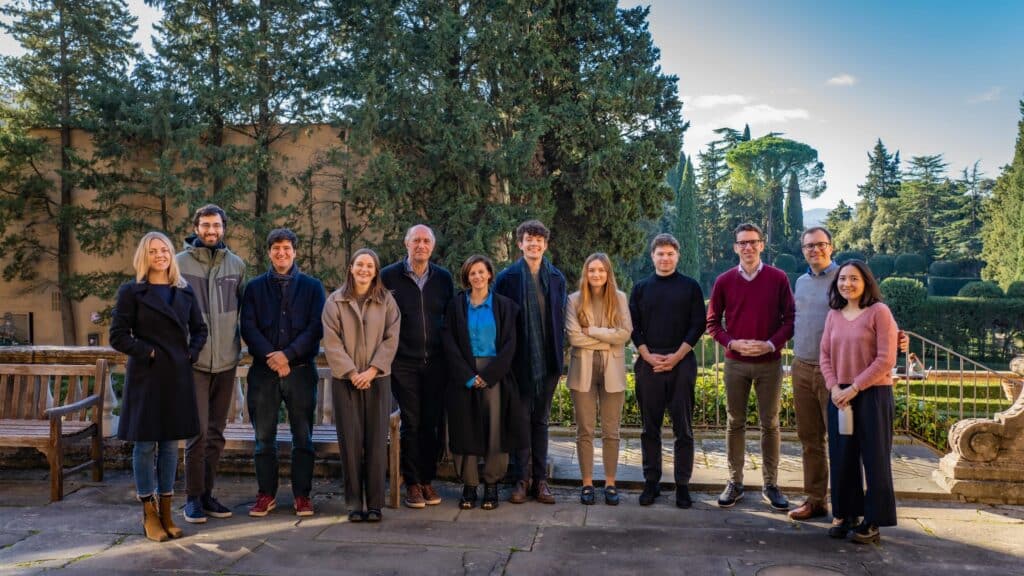50 shades of green…gas (markets)? The first step is a taxonomy for the ‘new gases’
FSR Topic of the Month – Week 1
by Ilaria Conti (Head of FSR Gas)
Decarbonisation is undoubtedly a diversified concept which by definition should involve different actors, perspectives, processes. On the other hand, such complexity should not be reflected in the terminology used to discuss and analyse them.
In communication science, one term should ideally have a univocal reference to one or more elements of a group, otherwise, the risk of asymmetrical referencing is that knowledge gaps are created and the exchange of information results, thus, fallacious.
Extending this principle to the current debate on the so-called “new gases” or “renewable gases”[1] (hydrogen, biogas, biomethane, synthetic methane) it’s fundamental to agree on which terms we attribute to the different processes and products. That’s not all: what we need is also a common understanding of the reasons why we gave this or that gas a certain name. In a word, we need a taxonomy[2].
If the father of the very first taxonomy Aristotle had a relatively easier task when dividing all living things into two groups – plants and animals – several are the features that are worth considering when attempting to classify green gases.
Indeed, the same product (for example Hydrogen or biomethane) can be produced through several processes – and each of them may origin from a different feedstock and involve the injection of the release of different (GHG) emissions or solids.
Second, while everybody could agree that the environmental impact of such gases is important in the attempt of classifying them, there’s no agreement on where it would be reasonable to start accounting the impact of the “lifecycle” concerning the production of a green gas, nor on “which kind of environmental effect” should be considered first.
Third, since the taxonomy debate doesn’t start from a sort of regulatory void for green gases – as we will explore in the next Topic of the Month article – any new terminology proposal might have immediate consequences at regulatory and thus at commercial level (we will analyse this aspect in the next FSR Sector Coupling workshop[3]).
Fourth, the role of technological innovation is an element that cannot be neglected. An efficient taxonomy for the new gases should be able to accommodate progress in the technology used to obtain them, which is in continuous evolution.
Fifth, the ultimate ambition consists in finding a way to classify and refer to gases in all parts of the globe – by providing a “universal green energy dictionary” that is robust to geography or structural contingencies.
The issue is so evidently complex and multipurpose that the EU Commission quite rightly decided to enlarge the debate and go beyond the usual borders of the Gas Regulatory Forum (Madrid Forum), by inviting representatives from the electricity sector, the civil society and academia to join the debate.
At the 33rd Madrid Forum[4], which took place on 23-24th October, the three main contributions to the gas taxonomy debate came from the industry[5], from an NGO[6] and from us, the Florence School of Regulation[7].
Our taxonomy proposal builds on the recent work done through our newly launched Sector Coupling Platform[8] and particularly on some of the contributions collected, as well as on the dedicated online debate [9].
Unsurprisingly, the discussion on a gas taxonomy took the biggest space during the Forum – which didn’t get to any formal Conclusion.
The way to an agreed taxonomy seems therefore still quite long, with the main nodes being the link of the new taxonomy with the existing gas market and regulatory framework. Time will tell whether building on (and in some cases even “forcing”) pre-existing (infra)structures will be the right forward or if, instead, new solutions and fresh thinking will better help addressing the new challenges brought by the decarbonisation imperative.
In either case, every EU citizen is welcome to join the debate, and the Florence School will continue its mission, by following and actively contributing in first person and by facilitating the exchange via its knowledge platform.
[1] See Topic of the month of April 2019
[2] Taxonomy is a word of Greek origin which means “discipline of classification” (τάξις, tàxis, order and νόμος, nòmos, rule). If in practice the taxonomy is the science used in science (namely biology) to classify animals and plants into different categories, the extended meaning of this term includes any action of “grouping” things and attributing names to them.
[3] Link to 15th November workshop https://fsr.eui.eu/event/how-many-gas-markets/
[4] Link to https://ec.europa.eu/info/events/33rd-madrid-forum-2019-oct-23_en
[5] Link to https://ec.europa.eu/info/sites/info/files/energy_climate_change_environment/events/presentations/02.a.02_mf_33_presentation_-_new_gases_network_-terminology_gas_industry_perspective_-_deblock.pdf
[6] Link to https://ec.europa.eu/info/sites/info/files/energy_climate_change_environment/events/presentations/02.a.03_mf33_presentation_-_e3g_-_civil_society_perspective_on_common_terminology_for_gases_-_fischer.pdf
[7] Link to https://ec.europa.eu/info/sites/info/files/energy_climate_change_environment/events/presentations/02.a.01_mf33_presentation_-_fsr_-_reflections_on_gas_taxonomy_-_conti.pdf
[8] Link to https://fsr.eui.eu/gas/fsr-sector-coupling-platform/
[9] Link to https://fsr.eui.eu/event/fsr-online-debate-the-common-terminology-for-gases/






